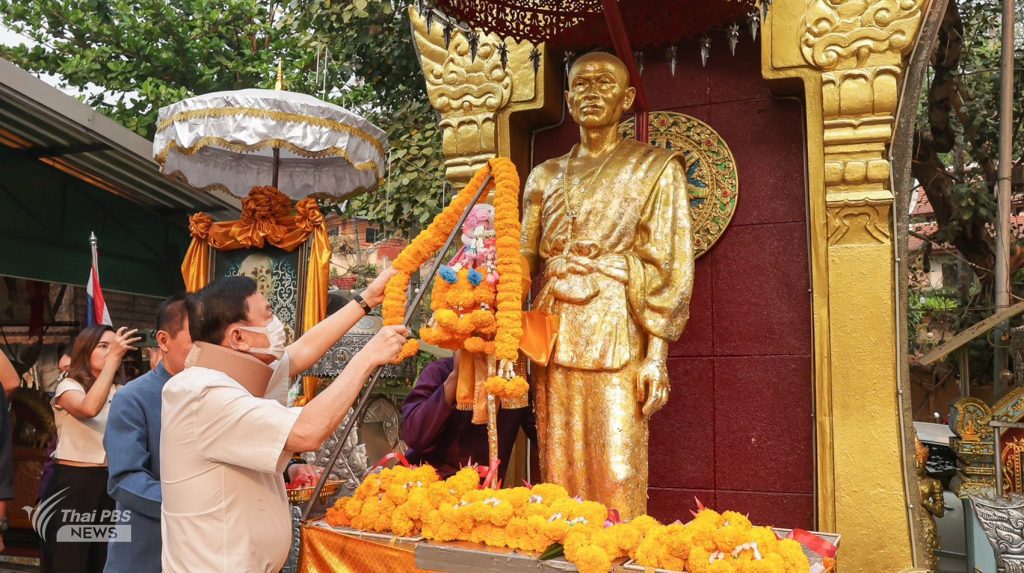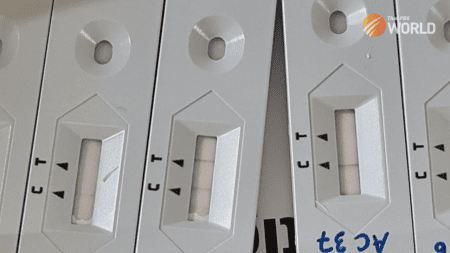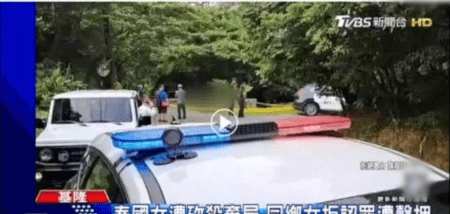The attention of the media has been on Thaksin Shinawatra since he came back to Thailand last August following 15 years in exile. This scrutiny increased on Thursday as the former prime minister started a three-day trip to Chiang Mai, less than a month after being released on parole.
Thaksin’s initial visit to his hometown since being removed in a coup 17 years ago will supposedly involve a religious ceremony at a Buddhist temple for his deceased parents and ancestors. He arrived in Chiang Mai on Thursday morning and was greeted by a group of red-shirt supporters and provincial officials.
Experts believe Thaksin will use the trip to gain more support in the city for his proxy party Pheu Thai after its disappointing performance in last year’s general election. The ruling party only secured two of the 10 MP seats in Chiang Mai, which had been a stronghold of Thaksin-controlled parties since Thai Rak Thai took power over two decades ago.
Move Forward won seven of the MP seats in Chiang Mai, while Palang Pracharath won one.
Thaksin is also aiming for success in the next provincial administrative organization (PAO) elections, scheduled for early next year, according to analysts.
Demonstrating political influence
Olarn Thinbangtieo, a lecturer at Burapha University’s Faculty of Political Science and Law, stated that Thaksin’s visit emphasizes the ex-premier’s strong political influence and behind-the-scenes power.
According to Olarn, Thaksin has shown his political influence on three levels since returning to his family mansion on February 18: the regional level by meeting Cambodia’s former prime minister Hun Sen on Feb 21, the national level by meeting Prime Minister Srettha Thavisin a few days later, and the local level with his ongoing Chiang Mai trip to meet political allies.
Chiang Mai holds significant importance for Thaksin and Pheu Thai, being his birthplace, a key base for their red-shirt supporters, and the birthplace of two prime ministers from the Shinawatra family – Thaksin and his younger sister, Yingluck.
“This visit is intended to enhance Thaksin’s political influence and regain his popularity in Chiang Mai. He aims to gather support from red shirts who still support him. Additionally, it is preparation for Pheu Thai’s battle for seats in the PAO elections next year,” Olarn said.
In the previous local election in December 2020, Pheu Thai’s Pichai Lertpong-adisorn won by a narrow margin to become Chiang Mai’s PAO chief executive. Next year’s election is expected to be even tougher for Pheu Thai after Move Forward promised to compete fiercely for PAO seats.
Rebuilding political connections
Thaksin’s visit to Chiang Mai is aimed at rebuilding his political connections and reestablishing ties with allies in the hope of restoring his political machine’s once powerful election track record, according to Stithorn Thananithichot, director of the Office of Innovation for Democracy at King Prajadhipok’s Institute.
The analyst noted that many of Thaksin’s allies in Chiang Mai have now joined Move Forward. Concern is also growing that his old allies from the Buranupakorn clan, which has dominated Chiang Mai’s political scene for years, may partner with the main opposition party in the next PAO election. Former PAO chief executive Boonlert Buranupakorn ran as an independent in 2020 but lost to Pheu Thai’s Pichai.
“To regain his dominance, Thaksin needs to begin with the red-shirt strongholds. If he fails there, it will be harder elsewhere,” Stithorn said, and added that the best chance for the Pheu Thai leader was in Chiang Mai.
‘High-stakes bet’ for Pheu Thai
Wanwichit Boonprong, a lecturer of political science at Rangsit University, notes that Thaksin is closely linked with Chiang Mai, his traditional base. For him, the northern city takes pride in being the birthplace of two former prime ministers.
“Thaksin’s visit is aimed at demonstrating the Shinawatras' commitment to Chiang Mai. He aims to recapture his ‘champion's belt,’ but the PAO election is a significant risk. If Pheu Thai loses, the Shinawatras will face difficulties in the national vote,” Wanwichit predicted.
He also mentioned that a successful gathering with red shirts in Chiang Mai might lead to similar meetings for Thaksin in other cities with significant red-shirt followings, especially in the Northeast.
Thaksin’s appeal ‘diminishing’
Some analysts question whether Thaksin’s Chiang Mai visit will produce positive outcomes for him. Olarn said the Pheu Thai leader seems to overestimate his political influence.
While Thaksin still holds sway over many politicians and elites, his popularity among grassroots voters has greatly declined compared to his peak in the early 2000s, Olarn stated. Many red shirts are disillusioned with him, while younger voters who grew up during his exile do not have strong admiration for the former PM.
There is also a large group of people who will never support Thaksin or his surrogate party, the analyst added.
These include the royalist yellow shirts, supporters of the People’s Democratic Reform Committee (PDRC), and people upset by what they see as Pheu Thai’s betrayal in abandoning a Move Forward-led alliance to form a government with the conservative old guard after last year’s general election.
Many others are also dissatisfied with the apparent double standards behind Thaksin’s treatment upon his return. The ex-PM was granted a royal pardon that reduced his prison term from eight years to one and spent the entire six-month detention in hospital instead of jail.
“All of these factors make it impossible for Thaksin to promote himself in the political arena anymore, although the old conservative political powers still rely on him [as a counterbalance against the reformist Move Forward Party],” Olarn said.
‘Coincidental’ encounter likely
Thaksin will be in Chiang Mai at the same time as PM Srettha, who’s making a work-related trip to the northern city. The prime minister is due to follow up on measures to combat forest fires and PM2.5 smog during his stay from March 15-17. He will chair a mobile Cabinet meeting in nearby Phayao province on March 18-19.
Political observers anticipate the two will meet while in Chiang Mai. Srettha did not rule out the possibility but stated last week that he had no appointment with Thaksin.
Stithorn predicts Srettha will invite Thaksin to showcase his strategy for addressing national issues, including worsening air pollution during the current burning season.
Wanwichit suggests that this might be the prime opportunity for both men to have their photo taken together. And the present leader could utilize the pictures of harmony with Thaksin to support his government’s declining popularity in the face of increasing dissatisfaction, the analyst said.
By Thai PBS World’s Political Desk









